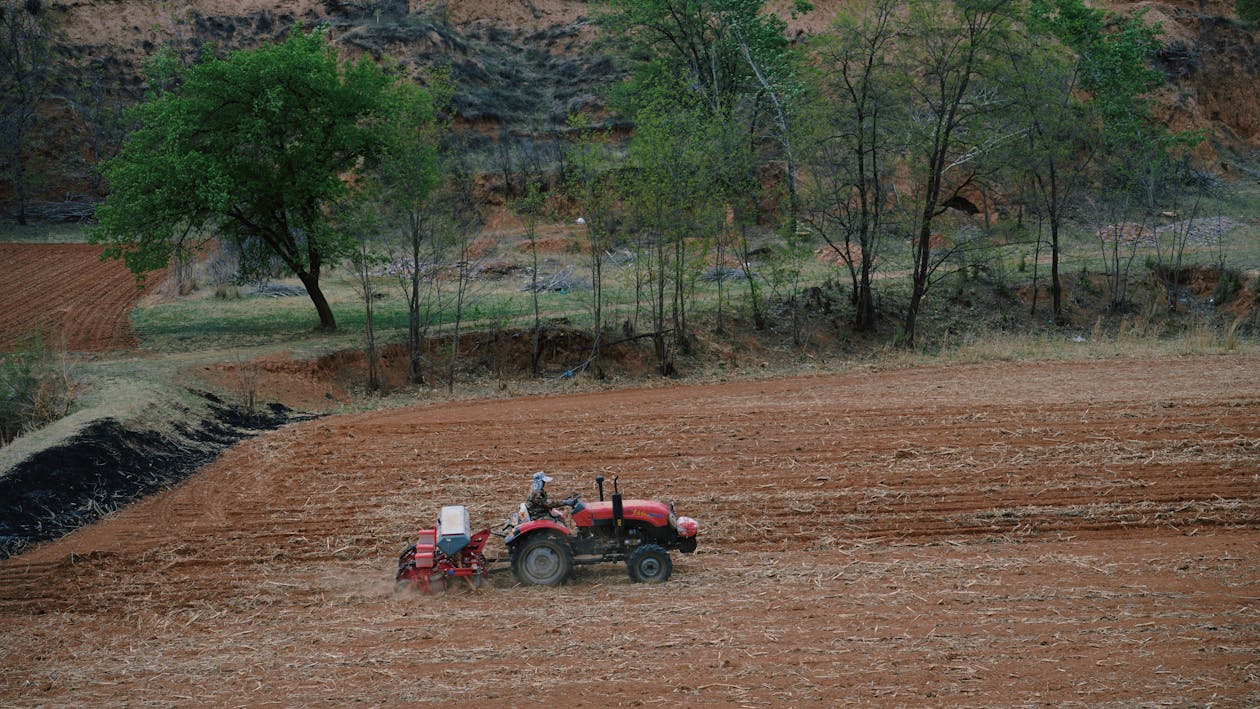Land for Sale in Kenya: Ultimate Guide to Safe Buying & Avoiding Scams
For those looking to invest, land for sale in Kenya represents an amazing opportunity for wealth creation and long-term investment. With its dynamic economy, rapid urbanization, and strategic position in East Africa, Kenya’s real estate market continues to attract significant interest from both local and international investors. However, navigating this vibrant market requires diligence and an understanding of the proper legal processes to safeguard your investment from prevalent scams. This comprehensive guide provides 7 essential steps to safely buying land for sale in Kenya, empowering East African investors to make informed decisions and secure their future.
Why Invest in Land for Sale in Kenya? An Amazing Opportunity
Kenya’s real estate sector has shown remarkable resilience and growth, with a 33.7% increase in sector output between 2019 and 2023. This upward trajectory is projected to continue, with the market value anticipated to reach $733.4 billion (Sh94.5 trillion) by 2024 and an impressive volume of $944.1 billion (Sh122 trillion) by 2029. Land, in particular, has emerged as the “most desirable investment” for 2025, with a growing number of investors opting for undeveloped plots over apartment units, especially in the country’s burgeoning satellite towns.
This preference for land for sale in Kenya is driven by several factors:
- Consistent Appreciation: Land in Kenya consistently appreciates, often outpacing inflation, offering attractive returns that can exceed 10% annually. Areas like Kamulu, Joska, Juja, and Malaa have seen annual value increases of 10% to 15%.
- Infrastructure Development: Major projects like the Nairobi Expressway and the Greater Eastern Bypass have significantly increased land values in areas such as Konza and Machakos, with some counties experiencing annual price surges of up to 9.46%.
- Rapid Urbanization: Kenya’s urbanization rate of 4.4% per annum, coupled with a population growth rate of 2.6% annually, creates sustained demand for land for sale in Kenya for both residential and commercial purposes.
- Government Initiatives: Programs like the Affordable Housing Program and Vision 2030 projects further stimulate demand and investment across the sector.
The versatility of land as an asset is a significant driver of its strong ROI. It offers not just capital appreciation but also inherent flexibility in usage, allowing investors to adapt their strategies to maximize returns based on evolving market conditions. This makes land for sale in Kenya a compelling choice for those seeking long-term value.
Understanding Land Ownership for Your Land for Sale in Kenya Purchase: Freehold vs. Leasehold
Before embarking on your journey to buy land for sale in Kenya, it’s crucial to understand the two primary forms of land ownership: freehold and leasehold. This distinction is particularly vital for East African citizens and other foreign investors considering land for sale in Kenya.
Freehold Ownership for Land for Sale in Kenya
Freehold ownership grants perpetual, indefinite ownership rights over land, representing the most secure form of tenure. It comes with minimal restrictions on land use and development, subject only to local zoning laws. Freehold land is predominantly reserved for Kenyan citizens and is more commonly found in rural areas. This type of ownership offers significant investment potential for land for sale in Kenya due to its unrestricted nature and inherent appreciation.
Leasehold Ownership for Land for Sale in Kenya
Leasehold ownership, conversely, grants ownership rights over land for a specified period, typically 99 years (though historically it could be 999 years). This tenure is prevalent in urban areas and is the primary form of ownership accessible to foreigners, including citizens from East African Community (EAC) member states. While it provides access to prime urban land, leasehold tenure involves specific usage restrictions and requires periodic lease renewals, which may entail complex processes and additional fees.
A critical legal nuance for EAC citizens is that despite the EAC Common Market Protocol promoting the free movement of capital and persons, Kenyan land laws specifically restrict freehold ownership to Kenyan citizens. This means that EAC citizens, like other foreign nationals, are limited to leasehold tenure for a maximum term of 99 years. Direct foreign ownership of agricultural land for sale in Kenya is also heavily restricted, generally requiring acquisition through a Kenyan-incorporated company with at least 51% Kenyan shareholding and approval from the Land Control Board (LCB).
| Feature | Freehold Title | Leasehold Title |
|---|---|---|
| Ownership Duration | Perpetual | Fixed term (e.g., 99 years) |
| Government Control | Minimal | Subject to renewal & regulations |
| Annual Rent Payments | None (generally) | Required |
| Transferability | Unrestricted (for citizens) | Subject to government approval |
| Usage Restrictions | Fewer | More regulations imposed |
| Eligibility | Kenyan Citizens Only | Citizens and Foreigners |
The 7 Essential Steps to Safely Buying Land for Sale in Kenya
The process of buying land for sale in Kenya, while appearing multi-faceted, is designed to safeguard transactions against the prevalent risks of land fraud. Each step serves as a necessary verification against common scams, ensuring your investment in land for sale in Kenya is secure.
Step 1: Identify Your Ideal Plot and Conduct a Thorough Site Visit for Land for Sale in Kenya
The initial step involves identifying a suitable plot that meets your needs, whether for residential, commercial, or agricultural purposes. A physical site visit is crucial to assess accessibility, infrastructure (roads, electricity, water), soil quality, and any potential encroachments. This firsthand assessment helps you confirm the land’s suitability for your intended use and its immediate environment, especially when considering land for sale in Kenya.
Step 2: The Crucial Land Search and Title Verification for Land for Sale in Kenya
Prior to any commitment, a crucial land search must be conducted at the Ministry of Lands. This verifies the legitimate owners, checks for any encumbrances such as loans, disputes, or caveats, and identifies outstanding land rates or rent. This process can be efficiently performed online via the Ardhisasa Portal, which was launched to digitize land services for Kenyans both locally and in the diaspora.
To conduct an online land search on Ardhisasa:

- Create an Account: Visit the Ardhisasa portal and create an account.
- Login and Select Service: After logging in, select the specific type of property search you wish to conduct.
- Enter the Details: Provide the necessary information, such as the parcel number or title deed number, for the land being searched.
- Make the Payment: Payments for the service can be conveniently made using mobile money or card payments.
- Access the Report: Upon successful payment, the search results report can be downloaded directly from the platform.
It is imperative to cross-check the seller’s details on the title deed against their national identification card (ID) and Kenya Revenue Authority (KRA) PIN certificate. Vigilance is required against fake title deeds, which fraudsters can meticulously craft to resemble genuine documents when dealing with land for sale in Kenya.
Step 3: Engage a Licensed Surveyor for Ground Verification of Land for Sale in Kenya
Requesting official land maps from the Ministry of Lands or survey office is essential to confirm the precise location and size of the land parcel. A licensed surveyor should then conduct a physical visit to the land to confirm its boundaries and ensure they align with the details on the land maps. This step is critical in preventing land fraud and encroachment issues when acquiring land for sale in Kenya.
Step 4: Draft a Robust Sale Agreement and Secure Land Control Board Consent (If Applicable) for Land for Sale in Kenya
A lawyer prepares a comprehensive sale agreement detailing the terms of the transaction, including the agreed price, payment structure, and other conditions. Typically, a deposit, often 10% of the purchase price, is paid at this stage. The agreement should be signed in the presence of witnesses and legal representatives to avoid future disputes related to land for sale in Kenya.
For transactions involving agricultural land for sale in Kenya, obtaining consent from the Land Control Board (LCB) is mandatory. This ensures the legality of the transaction and confirms the seller’s willing transfer of ownership. LCB meetings are held monthly at the sub-county level, and failure to obtain consent can lead to the transaction being nullified.
Step 5: Understand and Settle All Associated Costs and Fees for Land for Sale in Kenya
Beyond the advertised purchase price, several statutory and professional fees can significantly impact the overall investment budget for land for sale in Kenya. Underestimating these costs is a common pitfall, particularly for foreign investors unfamiliar with the local market. These include:
- Stamp Duty: This mandatory tax is 4% of the property value for urban land and 2% for rural land. It must be paid to the Kenya Revenue Authority (KRA) for the property transfer to be legally recognized.
- Legal Fees: Typically range from 1% to 2% of the purchase price, though these are negotiable.
- Registration Fees: Additional fees associated with the official registration of the transfer.
- Survey and Valuation Fees: Costs for professional surveying and property valuation services. A government valuer assesses the property’s market value, which determines the amount of stamp duty payable.
- Capital Gains Tax: A 15% tax on the profit from the sale of property, which is typically paid by the seller.
It is also vital to confirm that the seller has cleared all outstanding land rates to the relevant county government to avoid delays in the transfer process for land for sale in Kenya.
Step 6: Ensure Proper Payment and Title Transfer for Land for Sale in Kenya
Once all necessary payments are made, the transfer documents are prepared and lodged at the land registry. The seller hands over all relevant documents, including the original title deed, sale agreement, and any necessary approvals for the land for sale in Kenya.
Step 7: Register Your New Title Deed for Land for Sale in Kenya
Upon successful registration, the buyer receives a new title deed in their name, formalizing the ownership transfer. This final step legally confirms your ownership of the land for sale in Kenya.
Hiring a conveyancing lawyer is highly recommended throughout this process to ensure legal compliance and protect the buyer’s interests when acquiring land for sale in Kenya.
Safeguarding Your Investment: Avoiding Common Land Scams when Buying Land for Sale in Kenya
Real estate scams are a significant concern in Kenya, capable of transforming an exciting investment into a costly nightmare. The persistence and variety of these fraudulent practices point to a notable trust deficit within the market, particularly affecting diaspora and regional investors. When considering land for sale in Kenya, it’s crucial to be aware of these risks and how to mitigate them.
Specific scams prevalent in the Kenyan land market include:
- Double or Multiple Sales of Land: Dishonest landowners or brokers may sell the same parcel of land to multiple buyers, each receiving seemingly genuine documents.
- Forged Title Deeds and Counterfeit Documents: Fraudsters often present fake title deeds or land documents, meticulously crafted with convincing stamps and seals.
- Unauthorized Sale of Land: Individuals may pose as legitimate landowners using stolen identification or forged paperwork, or family members/agents may attempt to sell land without the legal authority or consent of all rightful owners.
- “Ghost Land” and Non-Existent Plots: Scammers advertise plots located in road reserves, riparian zones, or protected public land that either do not legally exist or cannot be privately owned.
- Fake Real Estate Developers and Online Scams: The digital space is exploited by scammers posing as developers or property companies, advertising land for sale in Kenya online, collecting deposits, and then disappearing.
- Fake Brokers and Unlicensed Agents: Unscrupulous individuals may pose as property agents or lawyers, charging exorbitant fees for viewings, reservation fees, or unlawfully collecting deposits.
- Bait-and-Switch Tactics: Scammers advertise an attractive property but then show a different, usually less desirable one, convincing the buyer to make a down payment before switching the property.
- Unbelievably Low Prices & Pressure Tactics: Fraudsters often lure victims with prices significantly below market value or create a false sense of urgency, pressuring quick decisions without sufficient time for due diligence when considering land for sale in Kenya options.
Best Practices for Due Diligence and Verification for Land for Sale in Kenya
Mitigating land fraud in Kenya relies heavily on systematically leveraging established, regulated channels and expert knowledge. This approach involves:
- Thorough Due Diligence: Engage qualified professionals to verify property ownership, conduct comprehensive title searches, and accurately assess property value for land for sale in Kenya.
- Official Land Search: Always initiate the process with an official land search at the Ministry of Lands or through the Ardhisasa portal. This step confirms ownership, identifies any encumbrances, and verifies the authenticity of the title deed for land for sale in Kenya.
- Verify Seller’s Identity and History: Cross-check the seller’s details on the title deed with their official government IDs and inquire about the complete history of land ownership to preempt potential disputes.
- Site Visit with Licensed Surveyor: A physical visit to the property with a licensed surveyor is essential to confirm the actual size, location, and boundaries, and to identify any unauthorized structures or encroachments.
- Professional Legal Counsel: Involving a licensed conveyancing lawyer is critical. The lawyer should draft or review all sale agreements, verify documents, check for ongoing disputes, and ensure full legal compliance. Utilizing a lawyer’s escrow account for payments adds an extra layer of security for land for sale in Kenya transactions.
- Verify Company Registration: If dealing with properties advertised by developers or companies, verify their registration status on eCitizen or through the Business Registration Service.
- Avoid Cash Transactions: To minimize risk, conduct all payments through verifiable channels and avoid cash transactions. Always deal with registered real estate agents when looking for land for sale in Kenya.
Why East African Investors Choose Kenya’s Land Market
Kenya’s stable economic environment and ongoing infrastructure development position it as a magnet for capital from across East Africa, especially for land for sale in Kenya. The nation’s pro-investment government and business-friendly regulatory reforms further enhance its appeal, establishing Kenya as a leading investment destination within the region.

- Regional Leadership: Kenya’s real estate market is seen as a leader within East Africa, attracting both local and pan-African players. The East Africa Property Investment (EAPI) Summit, held annually in Nairobi, brings together global investors, developers, and professionals, highlighting Kenya’s central role in the region’s real estate landscape.
- Diaspora Investment: A substantial portion of remittances from the Kenyan diaspora is directed towards real estate investments, reflecting a growing trend among Kenyans abroad to acquire property in their homeland. While a “trust deficit” has historically been a challenge for diaspora investors, the presence of institutional developers and regulated investment options like Real Estate Investment Trusts (REITs) offers safer avenues for investment in land for sale in Kenya.
- Diverse Opportunities: The Kenyan real estate market provides diverse investment options, from residential apartments and townhouses to commercial office spaces, retail centers, and agricultural land, catering to various needs and preferences for land for sale in Kenya.
Conclusion and Outlook: Your Path to Secure Land Ownership in Kenya
Land for sale in Kenya offers compelling opportunities for East African investors, characterized by robust growth, strategic infrastructure development, and diverse investment options. The market is poised for continued appreciation, particularly in satellite towns, driven by ongoing urbanization and sustained infrastructure projects.
Successful engagement in this market fundamentally depends on a thorough understanding of the legal framework, with particular attention to the nuances of freehold versus leasehold ownership for non-citizens. Mitigating risks through stringent due diligence, leveraging official government platforms like Ardhisasa, and seeking guidance from licensed professionals are non-negotiable steps for secure investments. The increasing professionalization and digitization of land services are expected to further enhance transparency and reduce investment risks over time for land for sale in Kenya.
For East African investors, Kenya remains a prime destination, offering attractive returns and a pathway to wealth creation. The complexities and risks within the market are navigable challenges. With the right information and a diligent approach, successful and secure land for sale in Kenya investment is achievable for the East African audience. This requires approaching the market with informed strategies and meticulous execution.

Frequently Asked Questions (FAQs) about Land for Sale in Kenya
Q1: Can a foreigner own freehold land for sale in Kenya?
No, foreigners are explicitly prohibited from owning freehold land in Kenya. Their ownership is limited to leasehold tenure for a maximum term of 99 years. If freehold land is inherited by a foreigner, the title automatically converts to a 99-year leasehold.
Q2: What is the Ardhisasa portal and how does it help in buying land for sale in Kenya?
The Ardhisasa portal (https://ardhisasa.lands.go.ke) is the Kenyan government’s digitized platform for land services. It allows users to conduct online land searches, verify ownership, check for encumbrances, and access other land-related services securely. This platform significantly enhances transparency and helps mitigate fraud, making the process of buying land for sale in Kenya safer for both local and diaspora Kenyans.
Q3: How long does the land buying process typically take in Kenya?
The entire property transaction process in Kenya typically takes between 30 to 90 days, depending on the approvals required and the thoroughness of the due diligence conducted.
Q4: What are the main costs involved when buying land for sale in Kenya, beyond the purchase price?
Beyond the purchase price, key costs include:
- Stamp Duty: 4% of the property value for urban land and 2% for rural land.
- Legal Fees: Typically 1% to 2% of the purchase price.
- Registration Fees: Associated with the official transfer registration.
- Survey and Valuation Fees: For professional assessment of the land.
- Capital Gains Tax: A 15% tax on profit from sale, usually paid by the seller.
Q5: How can I verify if a title deed is genuine when looking at land for sale in Kenya?
To verify a title deed’s authenticity, you should conduct an official land search at the Ministry of Lands, preferably through the Ardhisasa portal, using the title deed number. This search confirms the legitimate owner, checks for any encumbrances (like loans or disputes), and verifies if there are any outstanding land rates or rent. It’s also crucial to cross-check the seller’s details on the title deed against their national identification.




